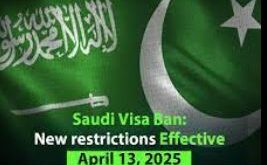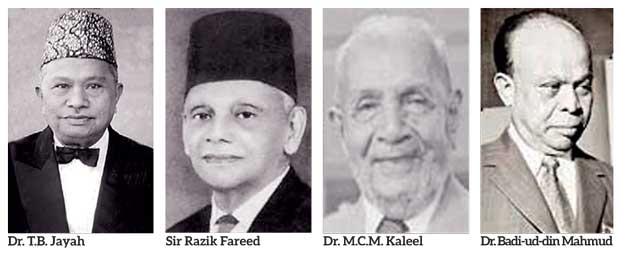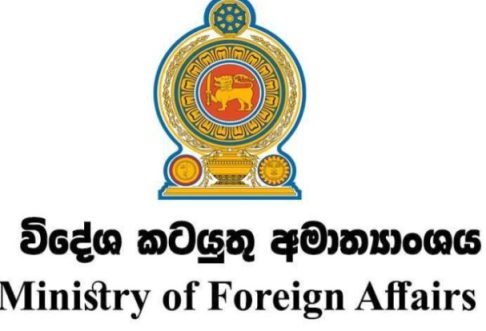by BBC world affairs correspondent Paul Reynolds.
Paul Reynolds, BBC world affairs correspondent, says (Introduction):
“President Obama’s speech is divided into a number of sections. He starts by urging greater mutual understanding between the United States and Islam. He then considers seven issues that have to be, in his view, confronted.
“These are violent extremism, the Israeli/Palestinian dispute, nuclear weapons (with a reference to Iran), democracy, religious freedom, rights of women and economic development. He finishes with a flourish about the future.”
Paul Reynolds, BBC world affairs correspondent, says 2nd para):
“The key phrase here and of the whole speech is a new beginning, with mutual interest and mutual trust added for good effect. In this opening section, the president seeks the common ground – he will leave differences until afterwards.
“He quotes from the Koran (Be conscious of God and always speak the truth) before he quotes from the Bible and the Torah as a way of flattering his audience.
“But he also uses the authority of the quotation to justify being quite blunt in places. But first, this part is about creating a sense of shared experiences.
“Right at the top he refers to 9/11 and violent extremists (no mention of al-Qaeda by name – that would accord it respect) among a small but potent minority of Muslims. He wants to break this cycle of suspicion.
Paul Reynolds, BBC world affairs correspondent, says:
“The president’s own family connections to Islam stand him in good stead here as he tries to build rapport, but he is careful also to state that he is a Christian, having been subject to comments at home about his background. He does not want that debate restarted.
“He emphasises the peaceful characteristics of Islam, with a romantic allusion to Muslims in Chicago finding dignity and peace in their Muslim faith.
He then reaches into history to recall the achievements of Islamic countries in the development of learning – navigation and algebra among them – and to tie Islam and America together by bringing in revered figures from early US history – John Adams and Thomas Jefferson.
But he carefully introduces the idea that Muslims also thrive in modern America – Muslims have enriched America – an important theme of the speech.
Paul Reynolds, BBC world affairs correspondent, says:
“Here he begins to get tougher, using the phrase negative stereotypes, with the important principle that while there should not be stereotyping of Muslims by Amercians Muslims do not fit a crude stereotype, nor should there be stereotyping of Americans by Muslims – America is not the crude stereotype of a self-interested empire.
“The speech is designed to break down negative perceptions on both sides. And he notes that seven million Muslims in the US enjoy a higher than average standard of living.
“He points out that US government supports the right of Muslim women to wear the hijab. He sums up Islam is a part of America.
Paul Reynolds, BBC world affairs correspondent, says:
“Now he begins to get tough. Having created goodwill and stated his aims, he tackles the first of the issues that we must finally confront together.
The first issue is violent extremism, by which he means Osama bin Laden, al-Qaeda, the Taliban and sympathisers.
He seeks to separate the extremists who claim to speak in Islam’s name from the ordinary people of all faiths, who reject the killing of innocent men, women and children.
Paul Reynolds, BBC world affairs correspondent, says:
“Repeating his line from his earlier speech in Turkey – America is not and never will be at war with Islam – he tackles the problem of the war in Afghanistan, trying to explain why the US went in after 9/11.
“He stresses al-Qaeda’s responsibility for 9/11, thereby rejecting claims widely circulating in the Muslim world that it was the US government itself that carried out the attacks in some way: Let us be clear: al-Qaeda killed 3000 people on that day.
“He states that the US does not want to keep its troops in Afghanistan, offering a reassurance that there is no long-term plan of occupation. But he also stresses that America’s commitment will not weaken.
Paul Reynolds, BBC world affairs correspondent, says:
“Iraq – a big issue. He does not criticise his predecessor President Bush but does say that this was a war of choice (meaning it was not his choice) while trying to put a gloss on the results in that the Iraqi people are ultimately better off.
“He lays down his own foreign policy approach by contrast: diplomacy and international consensus. This is really the heart of his philosophy on foreign affairs – a switch from interventionism to a more detached but determined effort at persuasion.
“He is careful to repeat his commitment to the withdrawal of US troops from Iraq. The message is – whatever happened in the past might have been bad, but the future will be better.
“He reminds his audience that he is also closing Guantanamo Bay, which has done untold damage to the US reputation across the Muslim world.
“But that dual message – you must do your bit as well as us – is also there when he says that extremists should be isolated and unwelcome in Muslim communities.
Paul Reynolds, BBC world affairs correspondent, says:
“Now comes one of the core issues – the Israeli/Palestinian dispute. Remember that the President has previously signalled his intention to revive peace talks and that he has distanced himself from the Israeli settlement policy, calling for an absolute freeze.
First, however, he has to reaffirm US support for Israel. He does not want expectations of differences to get out of hand: This bond is unbreakable.
And in a passage designed to refute Holocaust deniers, of whom there are quite a few in the Muslim world, he dwells for a time on reasserting the truth: Six million Jews were killed… Denying that fact is baseless, ignorant and hateful. It could hardly be stronger.
But he has to balance support for Israel by support for the Palestinians – and a Palestinian state. He does this very clearly, emphasising how the Palestinian people have suffered in pursuit of a homeland and are under occupation with daily humiliations in a situation that is intolerable. He says America will not turn its back on the Palestinians.
Paul Reynolds, BBC world affairs correspondent, says:
“Here he gets into the detail of how a settlement might be reached.
“It is not new – very little in the Middle East ‘peace process’ is new. The President seeks to reaffirm the two-state solution – a swipe at those on each side who reject this, or perhaps, like the Israeli Prime Minister Benjamin Netanyahu, who are equivocal.
“The aspiration of both peoples must be met through two states, he says. It is interesting how even-handed he is in his vision.
“He sticks by the currently little-read ‘roadmap’, an international plan drawn up but not followed up.
“Both sides have responsibilities – Palestinians must abandon violence and Israelis must acknowledge Palestine and its right to exist.
“He repeats his opposition to continued Israeli settlements and states firmly: It is time for these settlements to stop.
He ends quite a long section by calling on Arab states to help and he finishes by making the expected reference in such speeches – calling for peace for all of the children of Abraham.
Paul Reynolds, BBC world affairs correspondent, says:
“In this section he deals with Iran and its nuclear activities.
“President Obama has already offered talks with Iran but has not heard back yet. Here he continues to try to encourage Iran into such contacts and again promises that my country is prepared to move forward.
“He says that he is willing to move without preconditions. He hints that he, like many Israelis, is afraid of Iran’s intentions, saying that this is about preventing a nuclear arms race in the Middle East. Iran insists it has no ambitions to become a nuclear-armed state but wants nuclear power.
“What is interesting here is the absence of any threat against Iran – no mention of ‘all options on the table’ (meaning the military one) or even a tightening of sanctions. This is in line with the President’s policy of avoiding threats against Iran (at least for the moment).
Paul Reynolds, BBC world affairs correspondent, says:
“Here he deals with the delicate issue of democracy and Islam. Many Muslim countries are not full democracies. President Bush was vigorous in promoting democracy as the solution to the Middle East’s problems (even justifying the war in Iraq that way) but President Obama is less forthright. However he cannot ignore it.
“He carefully states up front, not wanting to offend friendly governments, that no system of government can or should be imposed upon one nation by any other.
“That said, he goes on to say that he favours those governments that reflect the will of the people.
“It is quite a short section, especially when compared to the whole speeches that George W Bush devoted to this. Mr Obama basically contents himself with a reference (unstated) to Abraham Lincoln in the Gettysburg address – government of the people and by the people – though why has he left out Lincoln’s last phrase ‘for the people’?
Paul Reynolds, BBC world affairs correspondent, says:
“This section on religious freedom takes the audience back to thinking about Islam.
“He again praises Islam – Islam has a proud tradition of tolerance – but, again reaffirms his theme that there have to be improvements on both sides, he is also critical: Among some Muslims there is a disturbing tendency to measure one’s own faith by the rejection of another’s.
“The introduction and main theme of the speech was about political tolerance. This part is about religious tolerance and he again appeals to the sensitivities of his audience by urging Western countries not to impede Muslims in their worship – or their dress.
Paul Reynolds, BBC world affairs correspondent, says:
“He devotes a section to women’s rights, which is as delicate an issue in some Muslim societies as references to democracy. It is a short section but quite hard hitting.
“His basic point is that women should have the choice about whether to live their lives in traditional roles. He is strong about the need for women’s education, a challenge to the Taliban.
He does not lecture, but he does state his views and there is a personal element perhaps when he says Our daughters can contribute just as much to society as our sons.
As elsewhere in this speech, he is careful to balance a call for action by Muslims by a call to understanding in the West, which should not think, he says, that a woman who chooses to cover her hair is less equal.
Paul Reynolds, BBC world affairs correspondent, says:
This is a feel-good section about economic cooperation and development.
It seeks to balance the heavy political messages with an affirmation that modernity can but does not have to lead to corruption. Change can bring fear, he says. But he adds, in a swipe at the regressive attitudes of some, that There need not be contradiction between development and tradition.
Paul Reynolds, BBC world affairs correspondent, says:
“This is the final flourish. President Obama lets rip a bit with his rhetoric – Choose the right path, not just the easy path. He repeats this key phrase new beginning and echoes the references to the need for change that brought him to power: We have the power to make the world we seek, but only if we have the courage to make a new beginning…
“He lays out what he hopes will be the results of his policies – “a world where extremists no longer threaten our people” and American troops have come home, where Israelis and Palestinians are each secure in a state of their own and where nuclear energy is used for peaceful purposes. (This last phrase is a reference to Iran).
And he ends by quoting from the Koran, the Talmud and The Bible.
Post Disclaimer | Support Us
Support Us
The sailanmuslim.com web site entirely supported by individual donors and well wishers. If you regularly visit this site and wish to show your appreciation, or if you wish to see further development of sailanmuslim.com, please donate us
IMPORTANT : All content hosted on sailanmuslim.com is solely for non-commercial purposes and with the permission of original copyright holders. Any other use of the hosted content, such as for financial gain, requires express approval from the copyright owners.
 Sri lanka Muslims Web Portal Sri Lanka Muslims News Center
Sri lanka Muslims Web Portal Sri Lanka Muslims News Center
 Donate
Donate



Obama’s address is certainly an important event.It is of course too early to make a definitive assessment.The following is worth reading. ”